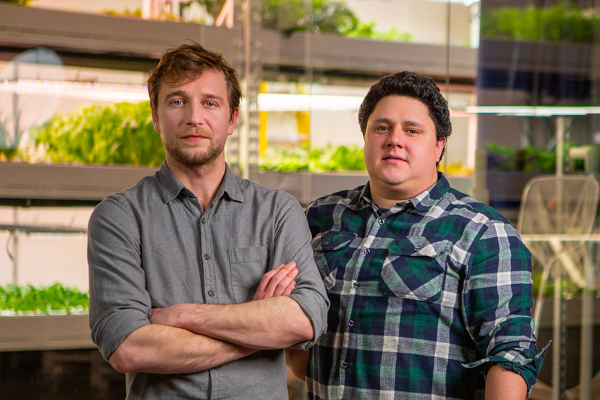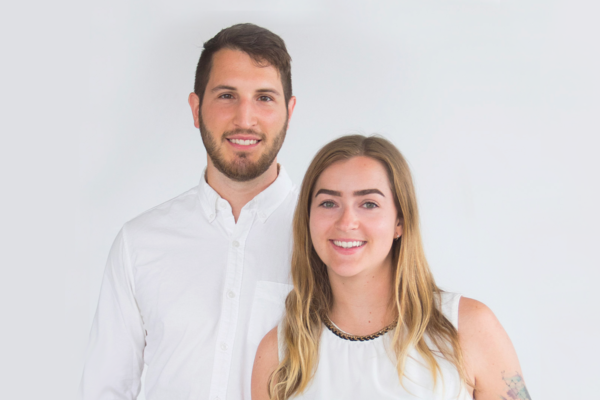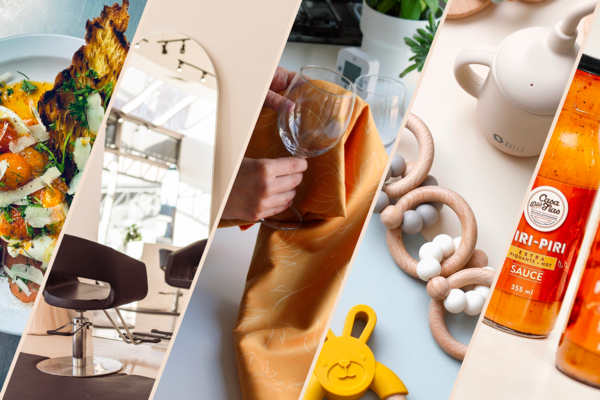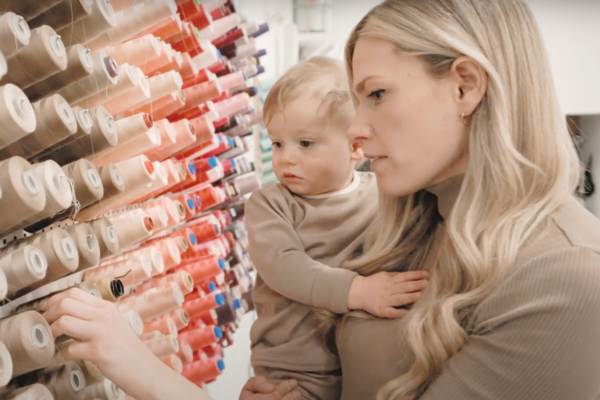As Aristotle said, the spectacle of nature is always beautiful. And it is precisely this marriage between nature and beauty that changed the life of Marianne Chouinard, founder of the impact business CaCO3 Biotech. Discover the story of an entrepreneur who has come out of her shell.
Originally from the Gaspé Peninsula, Marianne is part artist, part dreamer, which made it only natural for her to pursue a bachelor’s degree in arts. Her studies brought her into contact with all that is beautiful – shapes, colours, lustres, and more – and beauty is what truly excites her.
After completing her bachelor’s degree, Marianne felt the need to return to her roots, her home, the Gaspé Peninsula. Uncertain about the job opportunities in her region and eager to add a string to her bow, she started a master’s degree in public administration.
Armed with her degrees and a head full of dreams, she finally went back home. The return was more difficult than she had imagined, and Marianne felt like she wasn’t fulfilling her professional potential. Her need to be creative was growing. Without realizing it, she was already feeling the pull of entrepreneurship.
The time had come for Marianne to take a good look at her career. To do this, she got back to basics, reconnecting with what she truly loved. She loves her region, its beauty and its treasures; she loves the simple things, such as soaking up her surroundings during a quiet walk along the beach. And above all, she loves discovering for the thousandth time the natural resources around her. In short, the need to get back in touch with herself, with her essence, became pressing for Marianne.
From dream…
While walking on the beach, she loved looking at the shells she found. And what she saw fascinated her. The nacre, the inner surface of the shell of certain molluscs, and its iridescent reflections, inspired the artist and dreamer. Studying shells and their universe became a pastime, and then a passion.
The more she learned, the more shells piqued her curiosity. She wanted to know everything about them. What can nacre be used for? What are its properties? Can it be extracted from shells? And more. Marianne was soon imagining all sorts of uses for this lustrous, colourful material. From jewellery to the cosmetic industry, her ideas started to multiply.
But it was a meeting with a friend that lit a fire under her. After they talked, her friend told her: “You have to get started! Take action! You have nothing to lose.”
That’s all that it took for Marianne to take the plunge and launch her first efforts, which would allow her to test her ideas. Her reading showed her that nacre was used in products in Europe and Asia, so it was possible.


…to reality
That was when she found a program that would allow her to use the facilities of a research centre for 20 hours to test an idea. That program was followed by a second, which led to a small grant that would fuel her first true research project.
More motivated than ever, Marianne asked her employer for a one-year sabbatical to devote herself full time to her projects. After one year, she received a grant to launch them. Because, with her enormous creativity, Marianne doesn’t have just one project on the drawing board: she has three!
First, she is targeting the high-end cosmetics market. “I want to offer environmentally friendly products, but I don’t want them to be beige!” Marianne says, laughing. Shell powders, recovered from the food industry, can be integrated to a range of cosmetics, for instance, a body exfoliant made from shell aggregate, or an eyeshadow that gets its iridescence from nacre.
Next, she wants to supply raw materials to other industries, such as jewellery and crafts, so that nacre can be worked into jewellery, art objects or decorative objects. An engineering process compresses nacre powder and makes it possible to create marine gems, as hard as marble and resistant, that a lapidary artist can then carve like a stone: a sort of marine marble, an innovative raw material, local and responsibly sourced, which she named emerGem.™
Third, she wanted to cultivate – and enhance – this incredible nacre. This meant developing a new aquaculture economic activity that would involve cultivating molluscs to eat and then recovering the whole shell, which would be transformed into powder.
“That powder forms the basis of our product,” says Marianne Chouinard, founder of CaCO3 Biotech. “If we cultivate and eat shellfish, and its entire shell goes into the reclamation cycle, then the business can become self-sustaining in raw materials. This ensures a constant supply, of course, but also guarantees the product’s traceability as part of a circular economy project, something that is essential in cosmetics. In addition to waste recovery at the source, which keeps several tons of shells out of the landfill every year, the project is having a positive impact at every level.”
These three projects are running concurrently but advancing at different rates. Her cosmetic project is almost ready: there are just a few tests remaining. The jewellery portion is at the commercialization stage, while research and development for the aquaculture component will reach the pilot project stage in 2025.

The challenges and their solutions
Living in the regions comes with its share of challenges. Research centres, because they are specialized, are not necessarily found in Gaspé Peninsula, which means that Marianne has to travel regularly between cities.
This is in addition to other challenges, particularly in terms of financing. Most financial institutions use comparables and market studies to evaluate the risk associated with a loan. But because Marianne and CaCO3 Biotech are innovators, there are no comparables! So far, there is no one else in the industry in Quebec.
This is why the entrepreneur launched a crowdfunding campaign, in part to acquire specialized equipment, which could not be financed through other means, allowing her to eliminate subcontracting in her operations.
She also drew on resources from the entrepreneurial ecosystem and took advantage of any program she could find. This is why she quickly joined a business incubator (2 Degrés). “What resources are available when you join the incubator?” she asked the organization. “And I used them all!” she tells us, delighted.
This opportunity was key for her, because she could take advantage of professional resources she wouldn’t have had access to otherwise. Lawyers, entrepreneurs, mentors, coaches, specialists in a range of areas and other essential – and often expensive – resources, are made available to entrepreneurs: it makes all the difference in the world!
This was one of the messages she wants to share with people who are thinking of starting a business: “Don’t be afraid to ask for help. There are organizations that can help you, but they won’t come knocking on your door.”
Until she can afford suitable premises and equipment, the entrepreneur is involved in every stage of shell processing. And, when we say every step, we mean every step! She still picks up the shells, which she gets through industry partnerships (restaurants, plants), cleans them and packages them herself, by hand.
This will change with the possible addition of an employee, but Marianne’s goal is to always keep her hand in. Plus, once the operations are honed and everything is in place, the entrepreneur intends to contribute to the business’s more creative projects — designing jewellery, for example — because that’s what makes her eyes dance with delight!
CaCO3 Biotech’s values are creativity, making a difference and excitement. These are unorthodox company values. But they are essential for Marianne and truly define her. Plus, her entrepreneurial adventure has helped her learn that she is highly resourceful, has a talent for project management and an entrepreneurial spirit, but also a great deal of perseverance. Combining her values and her strengths, today Marianne is truly fulfilled.
“If you want something you have never had, do something you have never done,” Marianne says.
When the time comes to hire employees, Marianne wants to offer a lot of space for women and people who face barriers to employment, to show them that having a typical profile is not an end in itself. In Marianne’s case, she did graduate work, but worked in a field other than the one she studied in. She wants to inspire others to believe in and surpass themselves.
Marianne said it: “I don’t want it to be beige.” Believe us, CaCO3 Biotech is anything but!
We wish her all the success in the world!
• • • • • • • • • • •
Marianne Chouinard with Mélanie Marin, regional director for the Gaspésie–Îles-de-la-Madeleine. Known for her direct approach, her listening skills and her kindness, Mélanie builds trust with everyone she supports.
Thanks to the engagement of invaluable partners: Économie Québec, through its agent Investissement Québec, the Government of Canada, National Bank, the Business Development Bank of Canada (BDC), the Fonds de solidarité FTQ, and Fondaction, Evol has a large envelope to support, through conventional loans, businesses with inclusive, diversified ownership that generate positive social and environmental impacts in line with the UN’s sustainable development goals (SDG).






